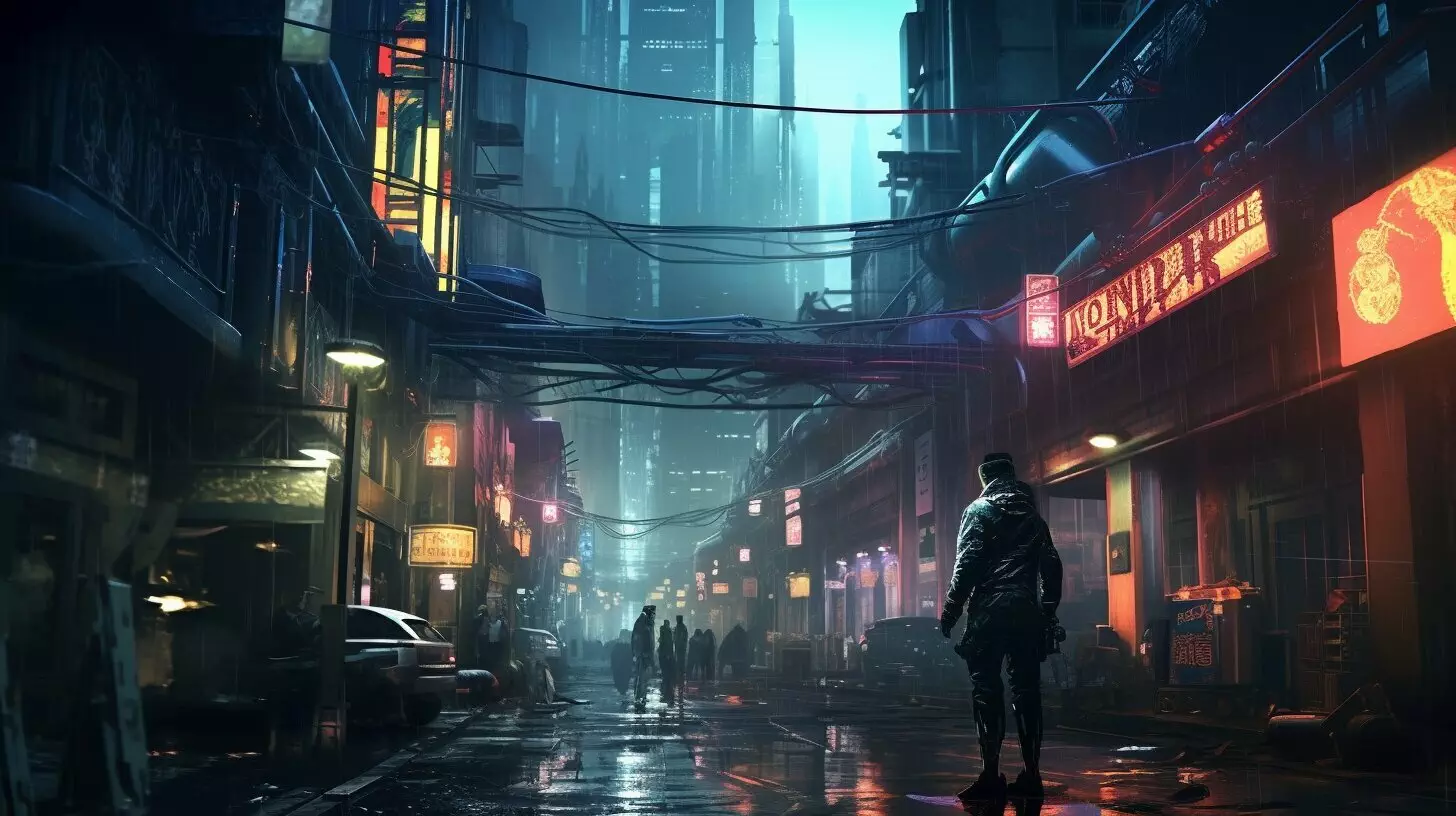Allow yourself to be entranced by the enchanting realm of literature as we explore the intriguing seven characteristics of an epic hero.
- An epic hero is a main character with impressive superhuman capabilities who completes awe-inspiring deeds.
- The 7 common traits of an epic hero include noble birth, superhuman abilities, vast traveler, unmatched warrior, cultural legend, humility, and battles with supernatural creatures.
- Examples of epic heroes include Beowulf, Odysseus, Gilgamesh, Achilles, Arjuna, and King Arthur.
- Studying epic heroes helps gain insight into ancient cultures, learn about literary techniques, extract moral lessons, and understand historical contexts.
- Teaching students about epic heroes can involve introducing the concept, analyzing epic poems or stories, understanding the hero’s journey, comparing and contrasting heroes, and creating their own epic hero.
What Defines an Epic Hero?
An epic hero is not just a regular hero; they possess extraordinary qualities that set them apart from the rest. In literature, an epic hero is the main character who embodies the values and ideals of their culture. They undertake grand quests, battle formidable adversaries, and exhibit remarkable bravery, wisdom, and virtue.
The archetype of an epic hero encompasses several heroic characteristics. They are often born into nobility, holding positions of power such as kings, princes, demi-gods, or god-like noblemen. This noble birth gives them a sense of destiny and a higher purpose.
Additionally, epic heroes possess superhuman abilities. These qualities include physical strength, courage, intelligence, and moral integrity. They are revered for their unmatched warrior prowess, showcasing their larger-than-life reputation. Through their grand adventures and encounters with supernatural creatures, they become cultural legends in their own right, gaining adoration from their people and leaving a lasting legacy.
| Epic Hero Characteristics | Examples |
|---|---|
| Noble Birth | King Arthur |
| Superhuman Abilities | Beowulf |
| Vast Traveler | Odysseus |
| Unmatched Warrior | Achilles |
| Cultural Legend | Gilgamesh |
| Humility | Arjuna |
| Battles Supernatural Creatures | Hercules |
Studying epic heroes provides valuable insights into ancient cultures and their beliefs. It allows us to analyze literary techniques employed in epic poems and stories, extract moral lessons, and understand historical contexts. For educators, teaching students about epic heroes can involve introducing the concept, analyzing epic poems or stories, understanding the hero’s journey, comparing and contrasting heroes, and even creating their own epic hero tales.
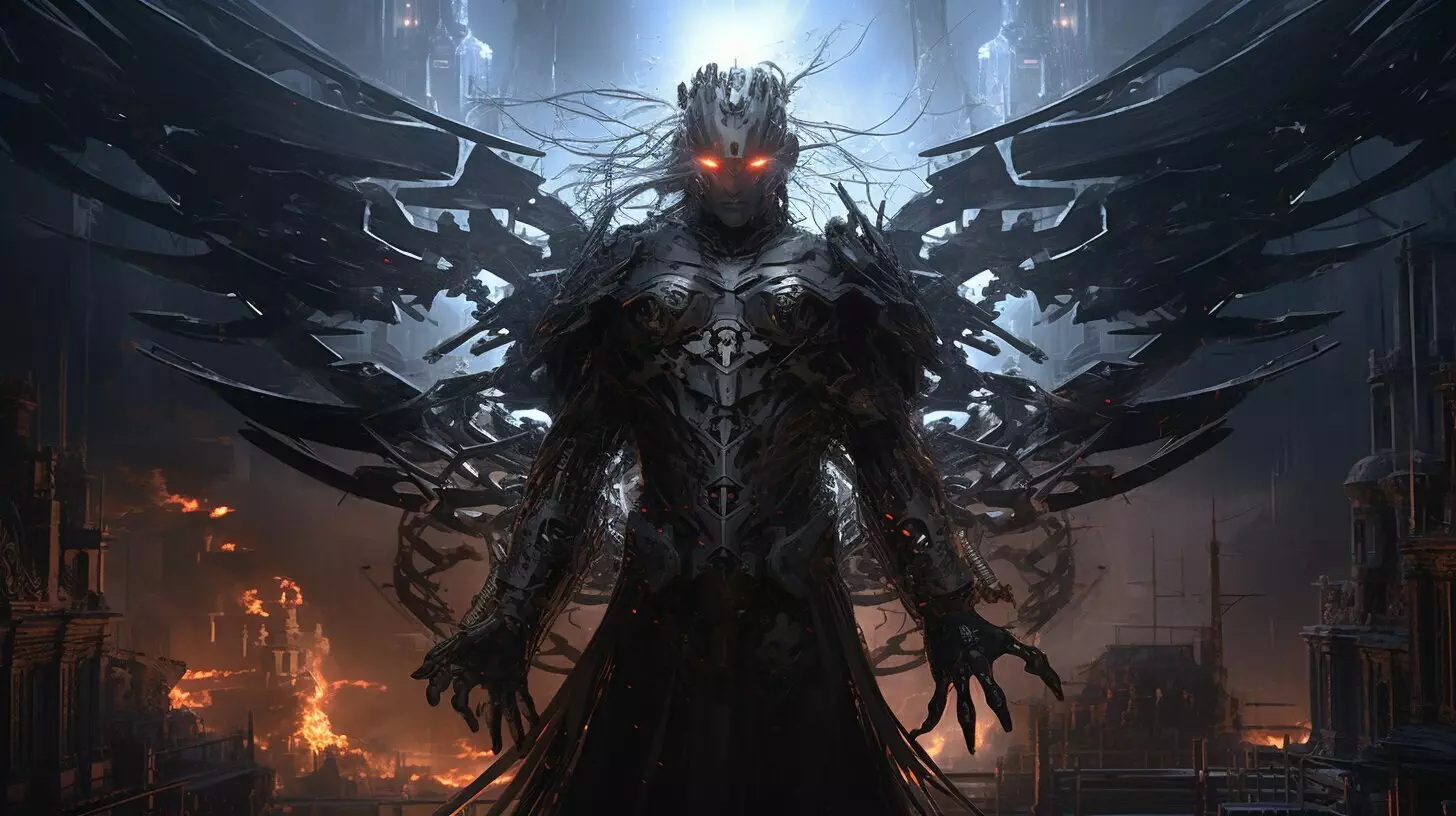
Noble Birth: The Importance of Lineage
The lineage and social status of an epic hero play a crucial role in shaping their journey and defining their character. In Greek epic heroes, noble birth is a recurring trait that signifies their elevated status within society. These heroes are often born into royal families, wielding power and authority that sets them apart from ordinary individuals. Their noble birth serves as a foundation for their heroic journey, influencing their actions and the expectations placed upon them.
An example of a Greek epic hero with noble birth is Achilles, the legendary warrior of the Trojan War. As the son of the sea nymph Thetis and the mortal king Peleus, Achilles is a demigod with a divine lineage. His noble birth grants him exceptional physical prowess and the favor of the gods, making him a formidable force on the battlefield.
Furthermore, noble birth in epic heroes is associated with a sense of destiny and purpose. These heroes are chosen by the gods for their extraordinary capabilities and are destined to fulfill great quests and accomplish heroic feats. Their noble bloodline sets them on a path of greatness and sets them apart from common mortals.
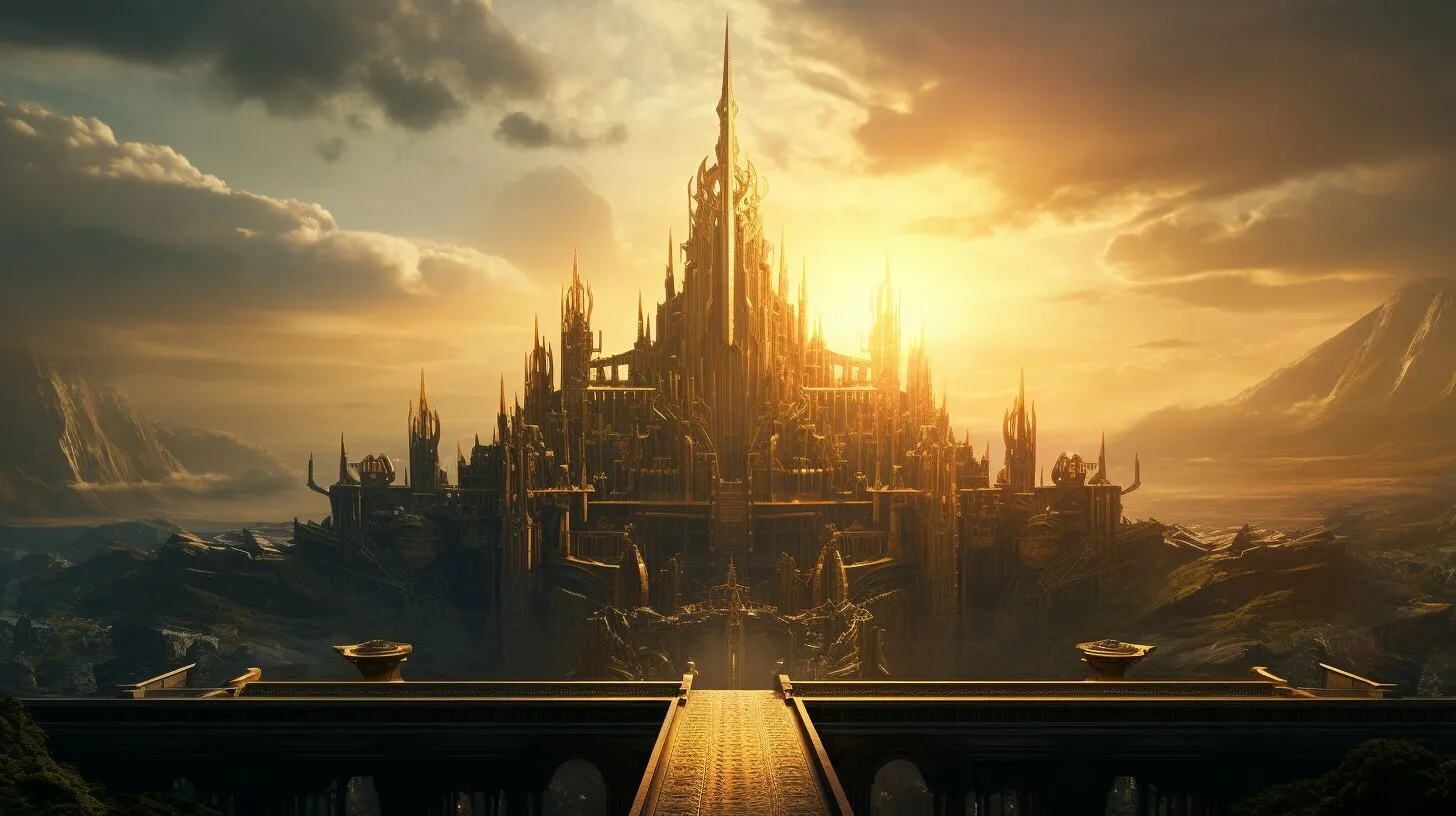
Table: Greek Epic Heroes with Noble Birth
| Epic Hero | Noble Birth |
|---|---|
| Achilles | Son of the sea nymph Thetis and the mortal king Peleus |
| Perseus | Son of Zeus and the mortal Danae |
| Heracles | Son of Zeus and the mortal Alcmene |
In conclusion, noble birth is an essential characteristic of Greek epic heroes, defining their identity and shaping their extraordinary journeys. The divine heritage bestowed upon these heroes grants them exceptional abilities and a sense of destiny that sets them on a path to greatness. By studying epic heroes with noble birth, we gain insight into the cultural values and beliefs of ancient civilizations and appreciate the significance of lineage in shaping heroes who transcend the ordinary.
Superhuman Abilities: Beyond Ordinary Capabilities
Epic heroes are known for their remarkable abilities that surpass the ordinary limits of human capability. Through their extraordinary attributes, they captivate readers and inspire awe. These larger-than-life figures possess strength, courage, intelligence, and other qualities that set them apart from the average person.
One famous example of an epic hero with superhuman abilities is Beowulf. As a warrior, he demonstrates immense strength and fearlessness, facing powerful adversaries and emerging victorious. Beowulf’s ability to defeat the monstrous Grendel and his mother showcases his exceptional physical prowess.
Another renowned epic hero, Achilles, possesses invincibility and exceptional combat skills. His near-invincible armor and unrivaled fighting abilities make him a force to be reckoned with on the battlefield. Achilles is revered for his extraordinary powers, which elevate him to legendary status.
Superhuman abilities are not limited to physical strength. In the epic poem “The Odyssey,” the protagonist Odysseus displays exceptional intelligence and cunning. His skillful strategies and quick thinking enable him to outwit his adversaries and overcome seemingly insurmountable challenges.
Odysseus proves his heroism through achievements like besting Polyphemus, resisting the sirens’ song, and reclaiming his household from the suitors.
It is through these incredible abilities that epic heroes achieve greatness and leave a lasting impact on literature and culture. Their extraordinary feats serve as a source of inspiration for generations to come, reminding us of the limitless potential within each of us.
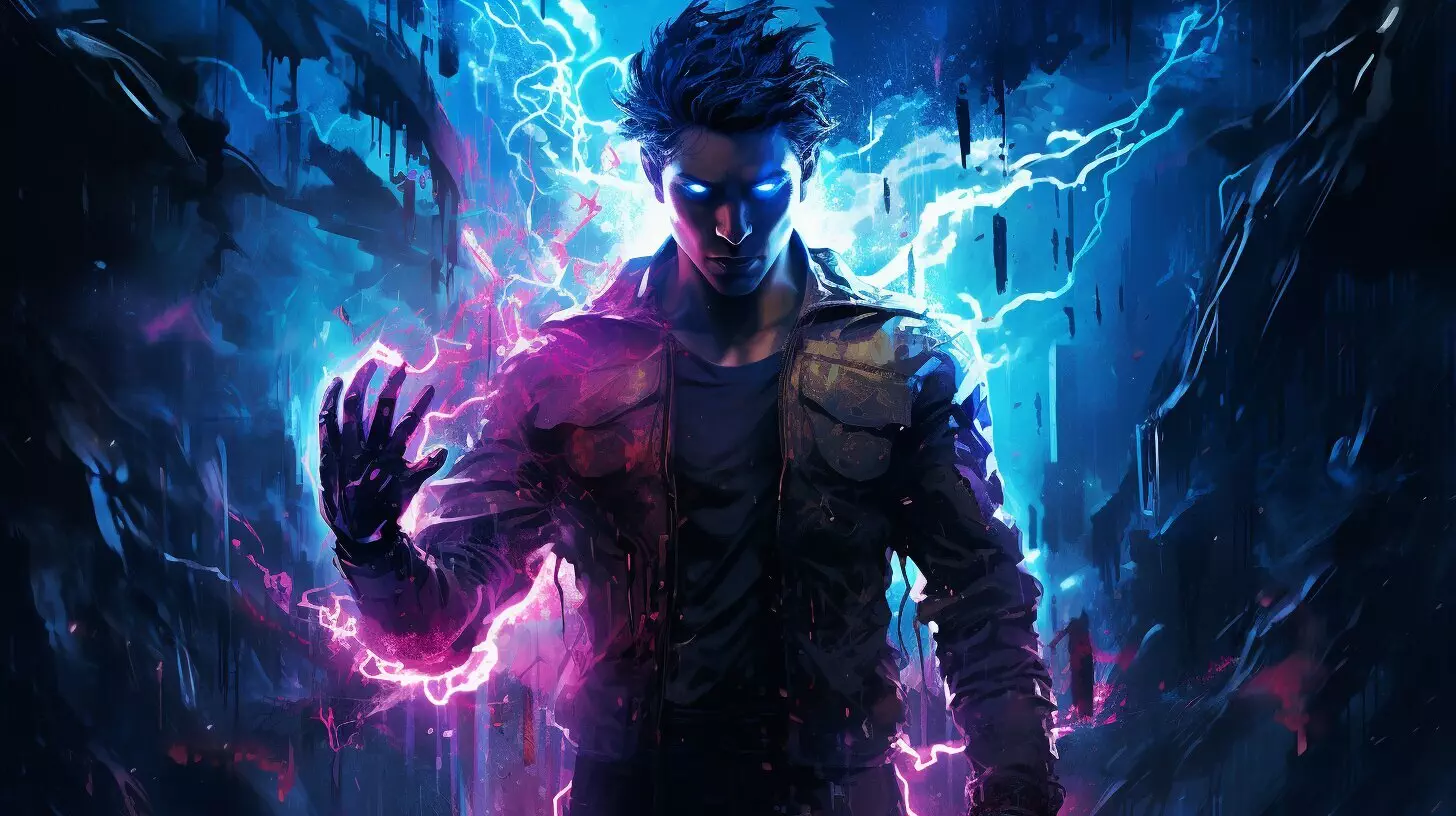
| Epic Hero | Superhuman Ability |
|---|---|
| Beowulf | Immense strength and fearlessness |
| Achilles | Invincibility and exceptional combat skills |
| Odysseus | Exceptional intelligence and cunning |
Vast Traveler: Adventures Beyond Boundaries
Epic heroes are wanderers, embarking on perilous quests and braving unknown territories. Their journeys take them through treacherous landscapes and expose them to unimaginable challenges. These travels are not just physical but also symbolic, representing the hero’s inner transformation and growth.
One example of an epic hero who embodies the concept of a vast traveler is Odysseus from Greek mythology. In Homer’s epic poem, “The Odyssey,” Odysseus endures a ten-year journey filled with trials and tribulations as he attempts to return home to Ithaca after the Trojan War. He faces mythical creatures like the Cyclops, seductive sirens, and the wrath of the gods. His travels expose him to different cultures and forces him to confront his own flaws and weaknesses.
Another notable epic hero known for his vast travels is the legendary Arthur Pendragon, better known as King Arthur. In the Arthurian legends, Arthur ventures on quests to seek the Holy Grail, battle formidable knights, and maintain peace in his kingdom. His journeys demonstrate his courage, chivalry, and determination to uphold justice.
| Epic Hero | Notable Journeys |
|---|---|
| Odysseus | Troy to Ithaca, encounters with the Cyclops, Circe, and the Sirens |
| King Arthur | Quest for the Holy Grail, battles against the Black Knight and the Green Knight |
These epic heroes’ journeys serve as metaphors for life’s challenges and the human quest for self-discovery. Their travels not only entertain but also teach valuable lessons about determination, resilience, and the importance of staying true to one’s values.

Unmatched Warrior: Tales of Heroic Conquests
Epic heroes are renowned for their unparalleled skills on the battlefield, their valorous triumphs etched into the annals of history. These larger than life figures possess the strength, courage, and strategic prowess to overcome seemingly insurmountable obstacles. From battling fierce monsters to leading armies into victorious conquests, epic heroes embody the pinnacle of warriorhood.
One of the most famous examples of an unmatched warrior is Achilles, the protagonist of Homer’s “Iliad.” Known for his invincibility, Achilles was a formidable force on the battlefield. His mythical armor, crafted by the god Hephaestus, was said to make him impervious to harm. With his trusty spear and his unwavering determination, Achilles fought alongside the Greek army in the Trojan War, leaving a trail of fallen enemies in his wake.
“With a mighty roar, Achilles charged into battle, his spear glinting in the sunlight. He cut through the enemy ranks like a whirlwind, his impenetrable armor deflecting arrows and swords alike. Fear struck the hearts of his foes as they realized they were facing an unmatched warrior, a force to be reckoned with.”
Another celebrated epic hero is Beowulf, the protagonist of the Old English poem of the same name. Beowulf’s legendary feats include slaying the monstrous Grendel, as well as the fearsome dragon that threatened his kingdom. Armed with his bare hands and a sword forged by giants, Beowulf fearlessly confronted these supernatural adversaries, proving his indomitable spirit and prowess in the face of danger.
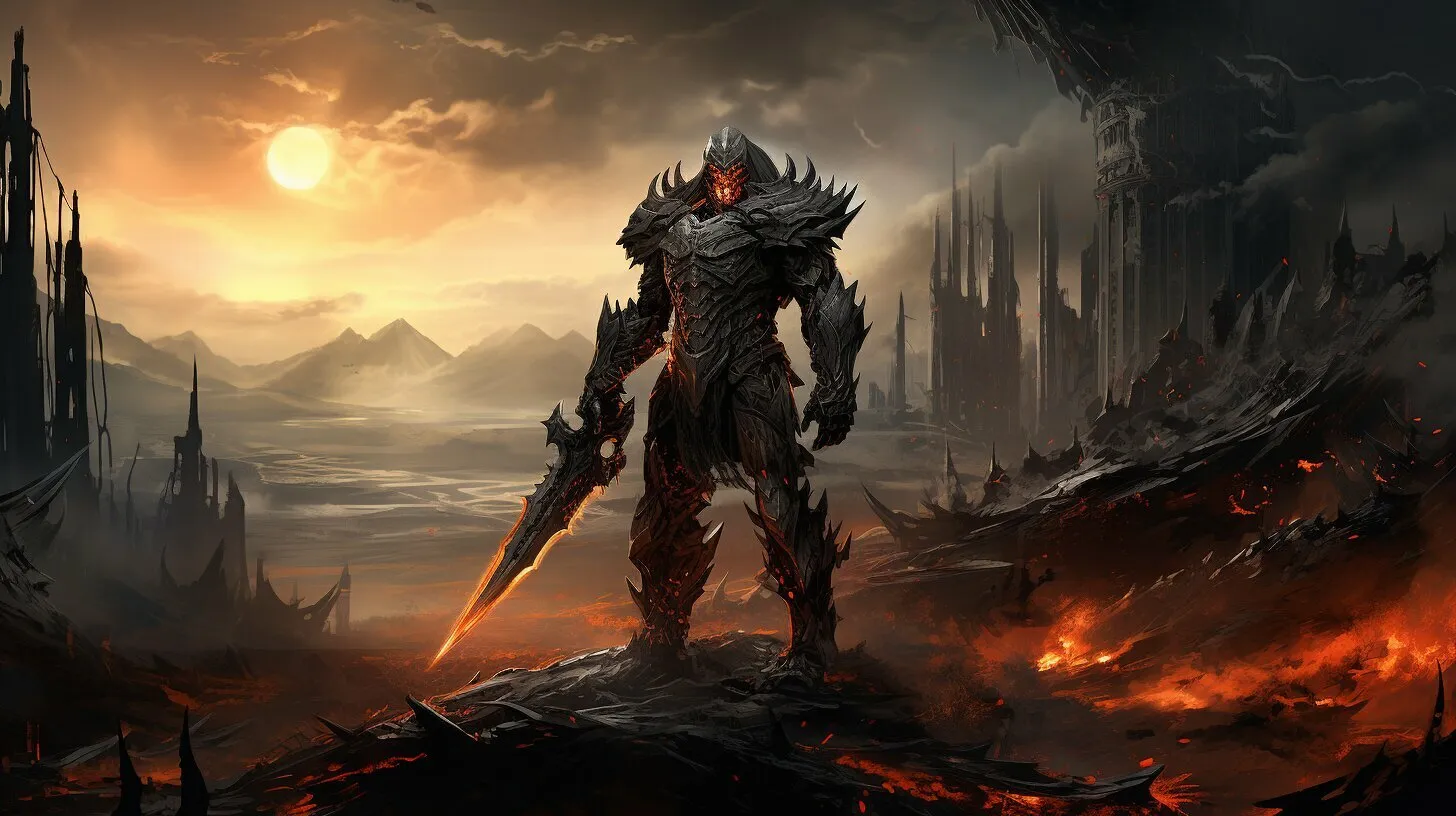
Legend of the Unmatched Warriors
The tales of these unmatched warriors have inspired countless generations, serving as a testament to the human spirit’s capacity for greatness. Their heroic conquests exemplify the characteristics of a hero in literature, depicting bravery, honor, and sacrifice. Through their tales, readers are transported to worlds where unimaginable dangers await, and where the extraordinary capabilities of epic heroes shine through.
| Epic Hero | Notable Conquests |
|---|---|
| Achilles | Trojan War, slaying Hector |
| Beowulf | Slaying Grendel, Grendel’s mother, and the dragon |
| Arjuna | Great War of Kurukshetra |
| King Arthur | Quest for the Holy Grail, battles against mythical creatures |
These legendary warriors continue to captivate audiences with their extraordinary abilities and their unwavering dedication to justice. Their stories serve as a reminder that heroism knows no bounds, and that even in the face of seemingly insurmountable odds, courage and determination can prevail.
Cultural Legend: From Local Hero to Universal Icon
Epic heroes are not just confined to their own cultures; they transcend borders and become symbols of heroism worldwide. Their extraordinary deeds, larger-than-life personas, and timeless stories capture the imagination of people across different societies and generations. These cultural legends serve as a bridge between the past and the present, connecting us to ancient traditions and inspiring us with their heroic virtues.
Take, for example, Beowulf, the legendary hero of the Old English epic poem. His tales of valor and sacrifice have resonated with audiences for centuries, transcending the boundaries of time and language. Beowulf’s iconic status as a cultural hero is not limited to Anglo-Saxon culture; he has become a universal symbol of bravery and heroism.
“The hero is the one who kindles a great light in the world, who sets up blazing torches in the dark streets of life for men to see by.” – Felix Adler
Similarly, the stories of King Arthur and his Knights of the Round Table have had a profound impact on European literature and folklore. Arthur’s chivalry, honor, and quest for justice have made him an emblematic figure of heroism and nobility, inspiring countless tales, poems, and novels.
These famous epic heroes have not only left an indelible mark on their respective cultures but have also influenced global literature, art, and popular culture. Their enduring legacy serves as a testament to the power of storytelling and the universal appeal of heroic ideals.
Epic Heroes: Icons of Heroism
When we study and celebrate these famous epic heroes, we gain valuable insights into the human experience, our shared values, and the timeless themes that resonate with people across cultures. Their stories provide us with a glimpse into the past, shedding light on historical contexts, societal norms, and the aspirations of ancient civilizations. By examining the cultural significance of these heroes, we can uncover hidden truths and understand how they shaped the collective imagination of different societies.
Moreover, exploring epic heroes allows us to analyze the techniques and literary devices employed by ancient poets and writers. We can appreciate the beauty of epic poems, the skillful use of language and imagery, and the artistry involved in crafting narratives that have stood the test of time.
In conclusion, epic heroes like Beowulf, King Arthur, and many others embody the collective aspirations, ideals, and values of humanity. They serve as cultural legends, inspiring us to strive for greatness, confront our fears, and stand up for what is right. Their stories continue to captivate audiences and remind us of the timeless power of heroism.
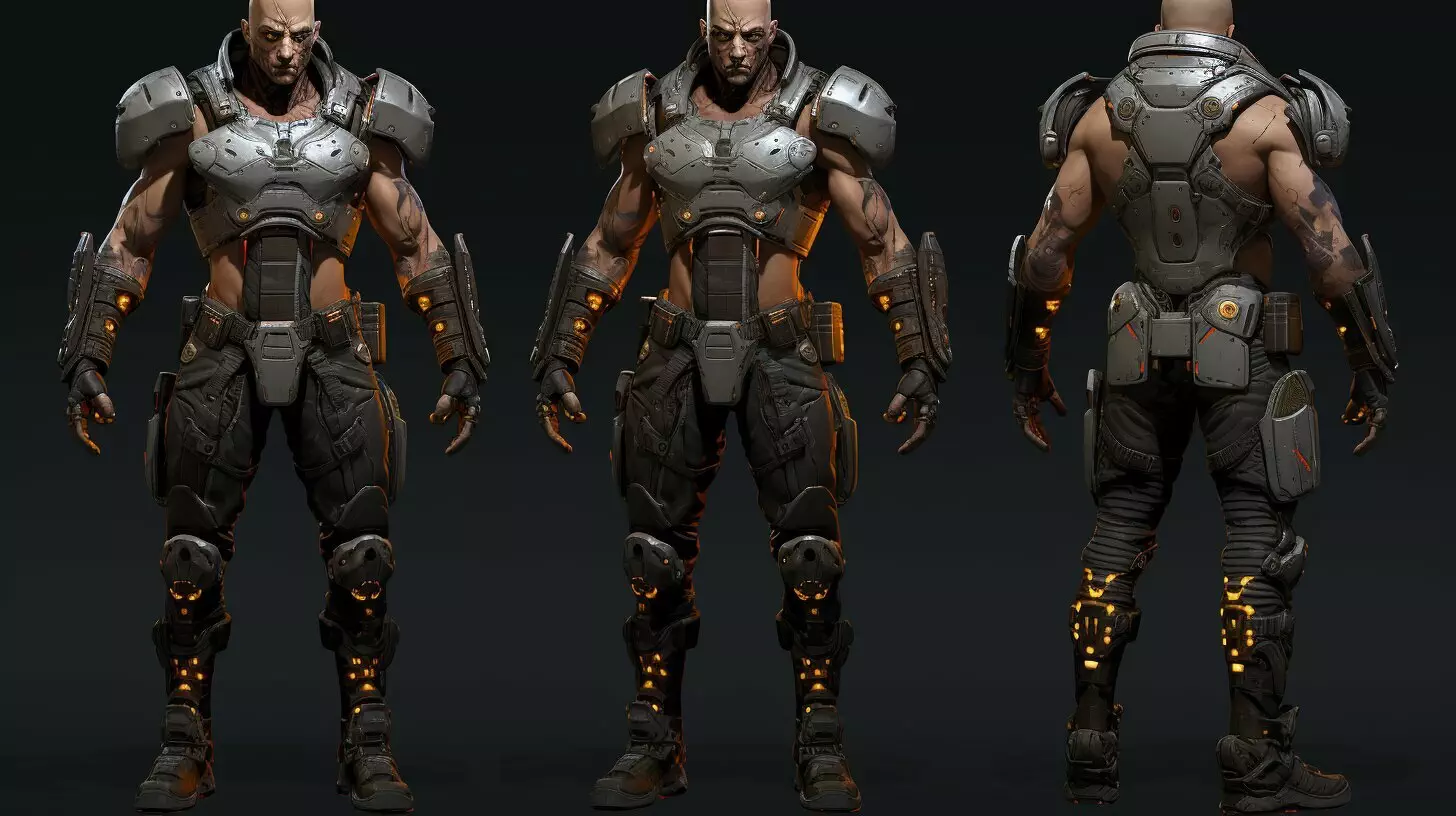
True heroism lies not in seeking personal glory, but in performing great deeds for the greater good. This principle is exemplified by the characteristic of humility in epic heroes, particularly in the context of Greek mythology.
In Greek epic heroes, humility is a virtue that sets them apart from ordinary mortals. It is a quality that they possess alongside their remarkable abilities and noble lineage. Humility enables epic heroes to approach their quests with a sense of selflessness, putting the needs of others above their own.
“I have been known as a man of cunning… I am Odysseus, son of Laertes, known to the world for every kind of craft.” – Homer, The Odyssey
This quote from Homer’s The Odyssey highlights Odysseus’ recognition of his own cunning and intelligence. However, it also demonstrates his modesty and refusal to boast about his abilities. Despite being a formidable warrior and a strategic genius, Odysseus does not seek personal glory. Instead, he directs his efforts towards achieving his ultimate goal of returning home and reuniting with his family.
Odysseus’ humility is further evident in his encounters with various supernatural creatures. Despite his immense strength and wit, he approaches these challenges with a sense of respect and deference. His humility allows him to navigate treacherous situations wisely, relying on his cunning rather than pure force.
| Epic Hero | Humility as a Virtue |
|---|---|
| Beowulf | Despite his heroic feats, Beowulf remains humble and gives credit to fate and God for his victories. |
| Achilles | Although known for his exceptional skill in battle, Achilles shows humility when he acknowledges the gods’ authority and the limits of his own mortality. |
| King Arthur | King Arthur’s humility is evident in his dedication to justice and his willingness to listen to the advice of his knights and allies. |
By embodying humility, epic heroes like Odysseus demonstrate that true heroism is not measured by the greatness of one’s achievements, but by the character and integrity with which one faces challenges. Humility allows heroes to remain grounded, maintain perspective, and ultimately make selfless decisions that benefit others.
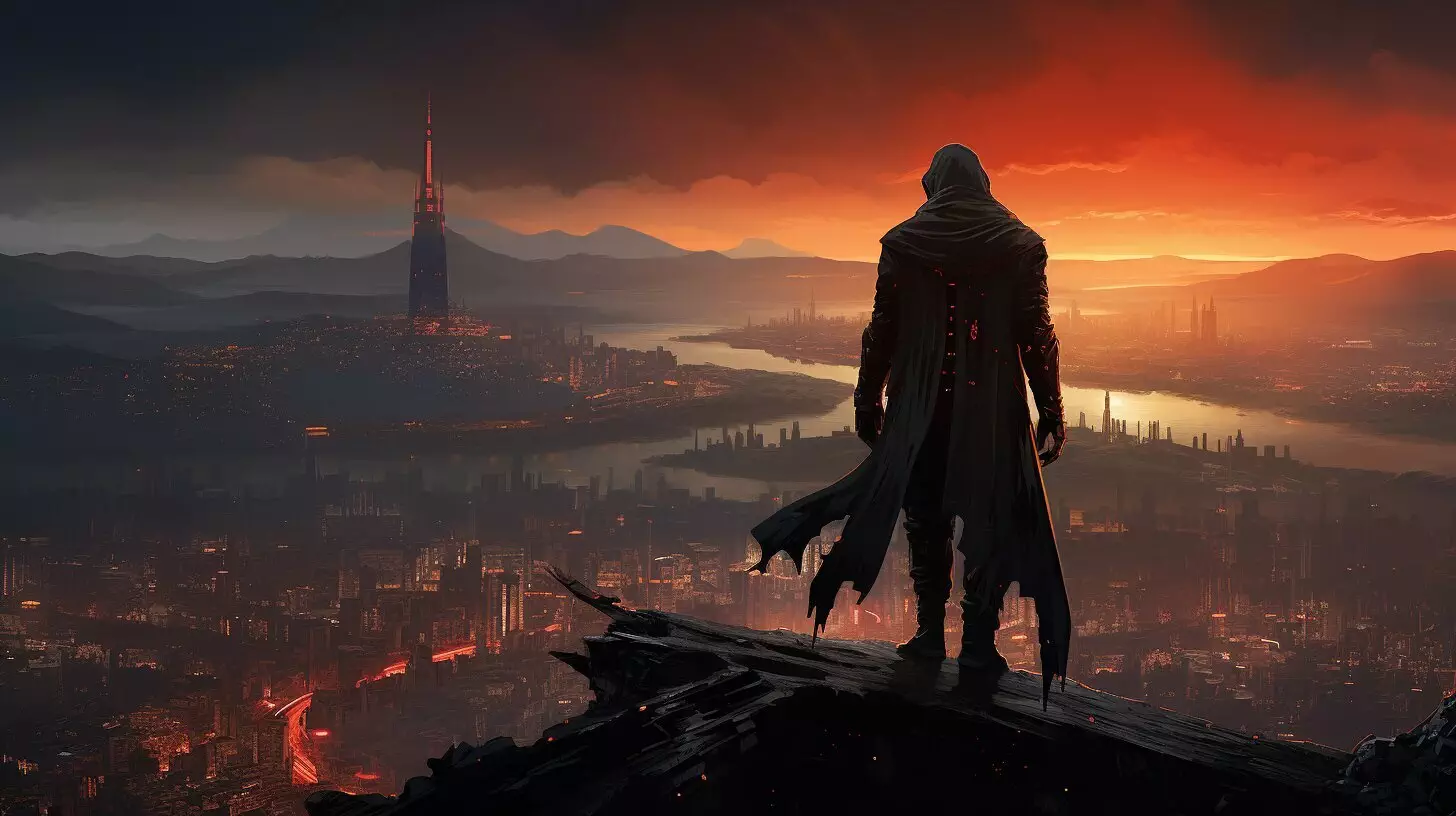
Studying the virtue of humility in Greek epic heroes provides valuable insights into ancient cultures and their ideals. It allows us to appreciate the complex range of characteristics that define an epic hero and the moral lessons they impart. Understanding the significance of humility in heroism enables us to find inspiration in these timeless literary figures and apply their lessons to our own lives.
Battles Supernatural Creatures: Confronting the Unimaginable
Epic heroes face formidable foes, battling supernatural creatures and overcoming seemingly insurmountable odds. These encounters with mythical beings and monsters are a defining characteristic of the epic hero’s journey. Through these epic battles, they demonstrate their courage, strength, and determination to protect their people and bring justice to the world.
One such example is the legendary hero Beowulf, who confronts and defeats the monstrous Grendel and his vengeful mother. Armed with his superhuman strength and unwavering resolve, Beowulf dives into the treacherous depths of the murky waters, engaging in a fierce underwater battle to secure victory. His triumph over these supernatural adversaries solidifies his status as a revered hero in the hearts of his people.
Another prominent epic hero who battles supernatural creatures is the mighty Hercules. Renowned for his incredible strength, Hercules faces numerous challenges, including the Twelve Labors assigned to him by King Eurystheus. These tasks involve defeating mythical creatures such as the Nemean Lion, the Hydra, and the fearsome Cerberus, the three-headed guardian of the Underworld. Through his bravery and exceptional combat skills, Hercules emerges victorious from each encounter, establishing his place among the greatest heroes of Greek mythology.
| Epic Hero | Supernatural Creatures Battled |
|---|---|
| Beowulf | Grendel, Grendel’s mother |
| Hercules | Nemean Lion, Hydra, Cerberus |
These epic battles not only showcase the hero’s physical prowess but also their determination to protect the innocent and uphold justice. The encounters with supernatural creatures serve as metaphors for the internal struggles faced by individuals in their own lives, making the epic hero’s journey relatable to readers across time and cultures.
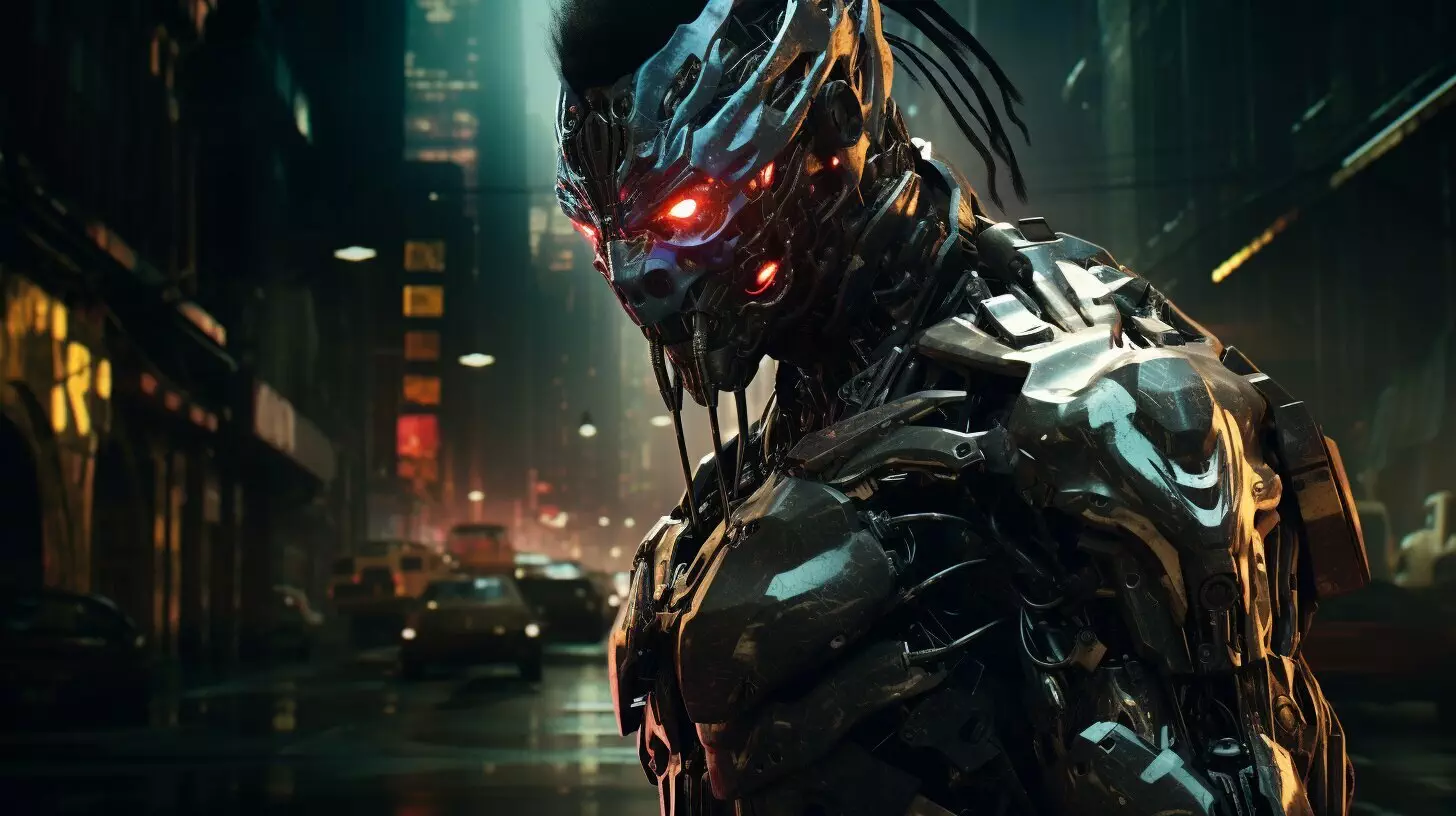
“The hero is one who kindles a great light in the world, who sets up blazing torches in the dark streets of life for men to see by.” – Felix Adler
- Beowulf battles Grendel and Grendel’s mother to protect his people and establish his heroic reputation.
- Hercules confronts and defeats formidable monsters in his Twelve Labors, showcasing his superhuman strength and courage.
- These epic battles symbolize the internal struggles faced by individuals and inspire readers with tales of bravery and triumph over adversity.
By facing and conquering supernatural creatures, epic heroes embody the indomitable spirit of humanity and inspire us to rise above our own challenges. Their tales continue to captivate and resonate with audiences, reminding us of the enduring power of myth and the triumph of good over evil.
Table of Epic Heroes and Their Battles with Supernatural Creatures:
| Epic Hero | Supernatural Creatures Battled |
|---|---|
| Beowulf | Grendel, Grendel’s mother |
| Hercules | Nemean Lion, Hydra, Cerberus |
What Are the Characteristics of the Heroines in Japanese Stories?
In japanese heroines’ stories of unyielding bravery, the characteristics are compelling. These brave women exhibit determination, resilience, and unwavering loyalty. They defy societal norms, often engaging in selfless acts to protect their loved ones or fight for justice. Their stories are marked by strong willpower and fierce determination, leaving a lasting impact on readers.
Conclusion
Through exploring the 7 characteristics of an epic hero, we gain a deeper appreciation for these legendary figures, their impact on literature, and their enduring relevance in our world today.
An epic hero is a main character with impressive superhuman capabilities who completes awe-inspiring deeds. They possess seven common traits:
- Noble Birth: Usually a king, prince, demi-god, or god-like nobleman.
- Superhuman Abilities: Possessing attributes like bravery, wisdom, and virtue.
- Vast Traveler: Embarking on perilous journeys to battle evil or visit other worlds.
- Unmatched Warrior: Having a reputation as a larger than life figure.
- Cultural Legend: A legend in their own culture before becoming universally known.
- Humility: Performing great deeds for their own sake rather than seeking glory.
- Battles Supernatural Creatures: Facing superhuman foes and obstacles such as monsters or gods.
Examples of epic heroes include Beowulf, Odysseus, Gilgamesh, Achilles, Arjuna, and King Arthur. Studying epic heroes helps gain insight into ancient cultures, learn about literary techniques, extract moral lessons, and understand historical contexts.
Teaching students about epic heroes can involve introducing the concept, analyzing epic poems or stories, understanding the hero’s journey, comparing and contrasting heroes, and creating their own epic hero. Epic heroes possess noble birth, superhuman abilities, divine assistance, and a tragic flaw. Odysseus, in particular, showcases strengths such as noble birth, courage, loyalty, intelligence, and divine aid. However, he also exhibits weaknesses, such as pride and excessive caution. Odysseus proves his heroism through achievements like besting Polyphemus, resisting the sirens’ song, and reclaiming his household from the suitors.
Through their extraordinary qualities and extraordinary feats, epic heroes have fascinated audiences for centuries. They not only entertain but also inspire us with their bravery, wisdom, and determination. By studying the characteristics of an epic hero, we can gain a deeper understanding of the human capacity for greatness and the timeless themes that resonate throughout literature. Whether it’s the noble birth, superhuman abilities, or battles against supernatural creatures, epic heroes continue to captivate readers and leave a lasting impact on the literary world.
FAQ
Q: What is an epic hero?
A: An epic hero is a main character with impressive superhuman capabilities who completes awe-inspiring deeds.
Q: What are the characteristics of an epic hero?
A: The characteristics of an epic hero include noble birth, superhuman abilities, being a vast traveler, unmatched warrior skills, being a cultural legend, humility, and battling supernatural creatures.
Q: Who are some examples of epic heroes?
A: Examples of epic heroes include Beowulf, Odysseus, Gilgamesh, Achilles, Arjuna, and King Arthur.
Q: Why should we study epic heroes?
A: Studying epic heroes helps gain insight into ancient cultures, learn about literary techniques, extract moral lessons, and understand historical contexts.
Q: How can we teach students about epic heroes?
A: Teaching students about epic heroes can involve introducing the concept, analyzing epic poems or stories, understanding the hero’s journey, comparing and contrasting heroes, and creating their own epic hero.
Q: What are some common traits of epic heroes?
A: Epic heroes possess noble birth, superhuman abilities, divine assistance, and a tragic flaw.
Q: What are the strengths of Odysseus as an epic hero?
A: Odysseus showcases strengths such as noble birth, courage, loyalty, intelligence, and divine aid.
Q: Does Odysseus have any weaknesses?
A: Yes, Odysseus exhibits weaknesses such as pride and excessive caution.
Q: What are some achievements of Odysseus as an epic hero?
A: Odysseus proves his heroism through achievements like besting Polyphemus, resisting the sirens’ song, and reclaiming his household from the suitors.

